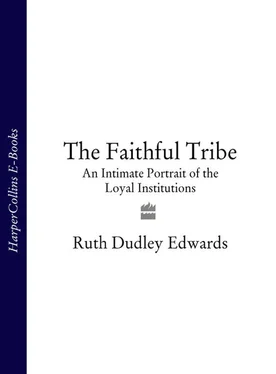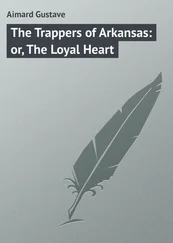It was a very instructive service for me, for Kennaway is evangelical and radical as well as very intelligent. Of all the services I’ve been to, it was from this that I learned most about what religious Orangemen truly believe and why the Reformation is so immediate to them. It was an exemplary service, too, in its clarity and homely informality.
Kennaway was determined to show his audience of old and young, and many shades of Protestantism, why they owed gratitude to God for giving men like Calvin, Knox, Luther, Wyclif and Zwingli and their successors ‘all the gifts of understanding so that they translated your word into the common language of the people of the day … We thank you that your work is not static or stagnant: it is a living word.’
He gave thanks that ‘the word lives by your spirit in the hearts and lives of men and women and boys and girls,’ and wished that it would ‘really live in the hearts and lives of our people throughout this island.’
His sermon was about the relevance of his Old Testament text to the sixteenth-century Reformation.
We are here today to give thanks to God for the Protestant Reformation. And we make no apology for doing precisely that. Because we have everything to give thanks to God for in the Protestant Reformation of the sixteenth century. We do so today, because this is the nearest Sunday to the last day of the month, because it was on the 31st of October 1517 that Martin Luther nailed his 95 theses to the church door at Wurtemberg … There was nothing particularly dramatic in this nailing theses or statements or propositions to the church door. There were no newspapers. Indeed if you go to any university today you’ll see noticeboards and all sorts of announcements and notices nailed to those noticeboards. That was a simple way that Martin Luther had of drawing attention to issues which concerned him.
Not all the theses were worth reading, he pointed out, and read out some that were, several of which were about the ‘the over-enthusiastic sale of indulgences or letters of pardon from the pope’. There was some more about what was owed to Luther’s successors and then he came to the heart of his homily:
It seems to me that we’re very good at drawing parallels in our local situation in Ulster to other situations in the world, but we’re not so good when it comes to drawing parallels to our spiritual situation in Ulster with spiritual situations in the scriptures. And for that reason I wanted to draw the parallel today because the problem of Ancient Judea is exactly the same as the problem of Ulster. It’s spiritual. Brethren and sisters, you had better believe it.
The answer therefore to the problems of Ulster is not a new political initiative. The answer to the problems of Ulster is a spiritual initiative, because the problems are fundamentally and basically spiritual problems. May I quote words spoken a few weeks ago by the County Grand Chaplain, William Bingham, when he addressed a fringe meeting at the Labour Party Conference:
‘As I look around Britain today, I look at the situation not only as an Orangeman, and an Ulsterman, but as a Christian – indeed a Christian minister. I am committed to Orangeism, but I am supremely committed to Christ. I recognize that my approach to religion – indeed many people’s approach to religion in Northern Ireland – is out of tune with the times in England but I do feel passionately that Christ and the gospel has provided the answer to the deepest needs of society and that peace and reconciliation begin at the Cross.’
The parallel with ancient Israel, Kennaway went on, was that
every time she went wrong spiritually, she went wrong politically. Every time she went after other gods, she lost her political battles … We are in danger of becoming a race merely of political Protestants … if we get away from the centrality of the word of God …
I believe in the principles of the loyal Orange institution, but I wonder do we all believe in these principles? … We have to make sure that our principles and our practice run parallel … I cannot help but fear that will ultimately be our downfall. We will become political Protestants and we will abandon our biblical principles. You see as I often say to groups of Orangemen and I make no apology for saying it again and saying it here: ‘If you are involved in something or you’re doing something which you know in your heart of hearts is out of keeping with the principles of scripture, then do, I beg you, not only for your soul’s sake – and that’s far more important than anything else – but for the sake of the institution which you profess to love, change your ways or resign.’
Oh, we have great principles, we have noble principles, but our condemnation will be when the world points the finger at us and asks where is our practice? Our principles and our practice ought to be the same. Do we want to see change? Do we really want God to bless us? Do we really want God to intervene in a situation in Ulster where if we are honest with ourselves we know it is only God’s intervention that can save us … People like to draw parallels to our present crises to the turn of the century – the Home Rule crisis – but some things are different, you know. And you’d better believe it. You see God played a more significant part in our nation at the beginning of the century. People were fundamentally more religious. And when they sang the words of that hymn we sang – ‘O God, our help in ages past, our hope for years to come’, they actually meant it. Do we? What’s the answer?
The answer is reformation and revival under the anointing of the spirit of God.
After we had sung the final hymn – a setting of the 46th psalm about God our trusty shield who makes wars cease – and, of course, the national anthem, and most people had left, Kennaway anxiously questioned those of us remaining about whether he had got his message through. Had he been direct enough? Always, my biggest culture shock when I go to the Ulster Protestant heartlands from London or Dublin, is once again to realize to what extent they say what they mean and mean what they say. It is no wonder they have such difficulty with the English desire to fudge and the southern Irish desire to please everyone.
A few of us stayed on for a chat and they showed me some more of the damaged Brownlow House. I asked about the band and was told that it was regarded as a major breach of Orange etiquette that its members had not come to the service. They shouldn’t, said one of them, be hired if they weren’t prepared to participate in the religious part of the proceedings. There was criticism, too, of the martial way in which they had banged out the hymn tunes. But one of the Orangemen shrugged. ‘What can you do? There are only two local bands and they’re both blood-and-thunder, because that’s what the young men like, and there’ll be bad feeling if we don’t hire locals.’ ‘If necessary,’ said Brian Kennaway, who is notorious for not suffering gladly either fools or yobs, ‘we could dispense with a band and parade down the road whistling.’
So once again, another own goal by decent Protestants and another example of the how perception and reality are at odds where the Orange Order is concerned. Here was a service attended by believing Christians, who listened intently to the message that they should live their lives as witnesses to God. Most of these people are the salt of the earth. But because they hire the local band, an outsider observing their parade could well have gone away with an image of drum-beating bigots.
A Cancellation, 9 August 1997
I was over from London for the Apprentice Boys’ parade which was to take place the next day, when just before midnight came the news that the Newtownbutler Residents’ Association was determined to block a small Black parade through the town early the following morning. So Mark and I decided to go there before we went to Derry.
Читать дальше












